Features
Sri Lanka Cricket: “No one can make you feel inferior without your consent.” (Elanor Roosevelt)
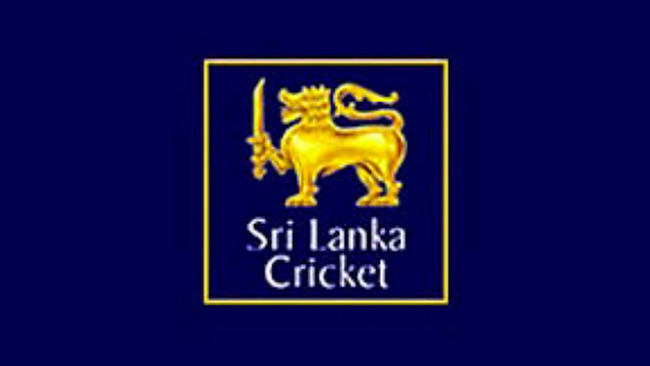
By Gamini Jayaweera
In January 2019, former Minister of Sports Harin Fernando appointed Major General Daya Ratnayake as the Chairman of the National Sports Council (NSC), along with 14 executive members, with the goal of uplifting sports in Sri Lanka. At the time, Harin Fernando stated, “As the Minister of Sports, my main focus is to ensure that sports are played clean in the country. Win or lose, playing clean should be the main focus. I want to put a stop to talented youngsters from rural areas being unable to compete and perform due to a lack of basic facilities like a pair of spikes.”
However, in November 2019, Harin Fernando resigned from his ministerial post following the defeat of the UNP candidate in the Presidential election. During the tenure of Harin Fernando and Daya Ratnayake, there was hardly any noteworthy progress in the development of sports generally.
In August 2020, the then Minister of Sports, Namal Rajapakse, appointed the well-respected former cricket captain Mahela Jayawardena as the Chairman of the NSC, which also included several famous former sports personalities as committee members. Upon accepting the Chairmanship of the NSC, Mahela Jayawardena stated, “Our intention is to start from the grass-roots level if we are to raise the standard to the top level. We will prioritize the sports depending on the competition. We will discuss merging sports with the education ministry, which has to work collectively. Apart from these, there is a need for changing the sports law, which is too old. We will look into the legal side of it and develop it to be conducive to us. It is going to be a long process, which I believe can be achieved with the support of the Minister.”
After serving as Chairman of the NSC for 12 months, in August 2021, Mahela officially announced, “Our goal is to felicitate medal-winning athletes at the international level, and Sports Minister Namal Rajapaksa has already given his blessings to execute our plans for the benefit of these athletes.” If Namal had approved Mahela & Co.’s plan, why did Mahela and some other members resign after a further nine months in their positions without implementing the much-needed reforms included in the plan? Interestingly, Mahela and others who resigned from their positions never complained about Namal’s failure to support their initiatives. If so, what went wrong?
Being Chairman of the NSC in Sri Lanka is a full-time job. It appears that Mahela’s casual approach to the NSC and his workload both locally and globally led to his failure to implement the proposals approved by the then Minister of Sports. Make no mistake, Mahela is a very capable and talented individual. He is a world-renowned cricketer and a well-respected cricket coach. In addition to the Chairmanship of the NSC, the Minister had given Mahela full authority to make decisions and appoint coaches.
However, it seems we have not progressed as described in the plans to uplift sports in Sri Lanka. It is surprising that after collaborating very closely with the former Minister of Sports, Namal Rajapaksa, and enjoying financial and other privileges, Mahela & Co. took one year and nine months to realize that the system was corrupt—a system well known to the public for at least the last two decades.
Although Mahela is an incredibly talented and respected individual, it would seem he did not have enough time to devote to developing sports in Sri Lanka due to his other worldwide commitments. It appears that Mahela & Co. failed to give 100% commitment to implementing the plans approved by the then Minister of Sports to uplift sports in Sri Lanka. One wonders whether Mahela had taken on more than he could manage. So, we were back to square one.
NSC Leadership
After Namal Rajapakse, the post of Minister of Sports and Youth Affairs was given to Mr. Roshan Ranasinghe who appointed a new Chairman and 15 committee members to the National Sports Council (NSC). Addressing the gathering at the Sport Auditorium at Torrington grounds, the Minister emphasized the importance of having a formidable team to lead Sri Lanka’s sports development. He highlighted the decision to appoint former World Cup-winning cricket team captain, Arjuna Ranatunga, as the Chairman of the NSC, citing Ranatunga’s decision-making skills, team management capabilities, and straightforwardness as key reasons for the 1996 Cricket World Cup victory.
However, the Roshan Ranasinghe’s statement is subject to debate. Many believe that the 1996 World Cup win was due to a combination of factors: strategic planning by the leadership team (then President Anna Punchihewa, Head Coach Dave Whatmore, and Captain Arjuna Ranatunga), the skill and talent of the cricketers, and the captain’s on-field decisions made in consultation with senior players.
This reasoning is further supported by the team’s performance in the 1999 World Cup in England, where they were eliminated in the first round. After the 1996 victory, Captain Ranatunga’s leadership style changed to a more autocratic approach, which demotivated team members. Some players privately referred to him as “Hitler” indicating dissatisfaction with his leadership. The absence of forward-thinking strategies also contributed to the team’s mediocre performance, as they lost three out of four matches, only managing to defeat Kenya, a weaker team, by 45 runs. The resulting losses, however, suggest that Ranatunga’s decision-making abilities and straightforwardness alone were insufficient for continued success.
The current President dismissed the Minister of Sports, Roshan Ranasinghe due to his inability to diplomatically resolve conflicts. Both the Minister and Arjuna Ranatunga had contentious relationships with local and international members of the ICC (International Cricket Council), causing further issues within the Sri Lankan Cricket Board.
Current Status
Mr Harin Fernando has been appointed once again as the new Minister of Sports following the dismissal of Roshan Ranasinghe. Newly appointed Sports Minister, Harin Fernando has sacked former Sri Lanka Cricket Captain Arjuna Ranatunga as Chairman of the National Sports Council and appointed Dr Maiya Gunasekara who has also already served as a former Chairman of the National Sports Council for seven years. It is a pity that the President of Sri Lanka could not find fresh faces to appoint to these important positions, instead of relying on the same old personalities who have previously failed to elevate Sri Lankan sports to an international level.
Sri Lanka Cricket
As a former cricketer, I am deeply disturbed and hugely disappointed the Minister of Sports, the Chairman of Sri Lanka Cricket (SLC), and the members of the Executive Committee administer our only successful international-level sport. Many Sri Lankans are wondering whether these individuals have the commonsense needed to uplift cricket in Sri Lanka.
Cricket is traditionally known as the gentleman’s game, embodying values such as integrity, discipline, and sportsmanship. However, in recent years, there has been a noticeable shift in the behaviour and attitudes of some Sri Lankan cricketers and managers. This shift has led to concerns about a decline in professionalism and a growing disregard for the principles that once defined this great sport.
Most Recent Performance
Our cricket team participated in the 2023 One Day International (ODI) World Cup in Australia, and it was revealed that some high-profile members of the management and players were attending restaurant promotions during the tournament. Newspaper reports have also revealed that some players were patronizing casinos and engaging in inappropriate activities during the tournament.
The SLC and the then Minister told the nation that they would conduct an official inquiry, publish the report, and punish the culprits. To date, no official or player has been charged except for Danushka Gunathilaka, who was prosecuted I Australia for alleged indecent behaviour. Same old story! Can the new Minister of Sports release this report and let the public know what punishments have been imposed on the officials and the cricketers involved in such misbehaviour?
Press reports suggest that some players and managers participated in an all-night drinking party at the players’ hotel the day before the match against South Africa in the recently concluded T20 World Cup in the USA. Whether these press reports are true or false, one thing is clear that the behaviour and discipline in the national team are well below the standard expected from a professional outfit.
Many of these players and managers seem more focused on personal gains and self-indulgence, prioritizing their desires over their responsibilities to the team and the nation. This lack of discipline and professional outlook has not only affected their performance on the field but has also tarnished Sri Lanka’s reputation as a respected cricketing nation. The consequences of such behaviour extend beyond the sport, bringing shame and disrepute to their fans and the entire country.
It is crucial for the cricketing community and authorities to urgently and thoroughly address these issues, reinstating the values that make cricket a revered sport and ensuring that Sri Lankan cricket regains its esteemed standing in the international arena. Let us hope this is not another attempt to whitewash the irregularities and ill-disciplined behaviour of our national cricketers and the members of the management team.
Way Forward
The recent resignations of Head Coach Chris Silverwood and Consultant Coach Mahela Jayawardena from Sri Lanka Cricket (SLC) following the national team’s early exit from the T20 World Cup have prompted a significant restructuring. Sanath Jayasuriya, a full-time cricket consultant who played an influential role with the T20 World Cup squad, has been appointed as the Interim Head Coach of SLC. Jayasuriya has previously served as the Chairman of Selectors from 2013 to 2015 and again from 2016 to 2017, though his tenure saw mixed results.
One of the critical issues SLC faces is the perception among many former players that their past cricketing achievements automatically qualify them for the Head Coach position. However, the role certainly requires more than just a strong cricketing background. The Head Coach must be adept at unifying the team through team-building exercises, training, and open communication to foster a cohesive culture within SLC. This includes possessing a high Intelligence Quotient (IQ), Social and Emotional Quotient (SEQ), and Managerial Quotient (MQ), in addition to cricketing skills, to effectively lead and motivate players, creating an environment where players are inspired to perform at their best.
The previous structure, involving multiple high-level coaches—Head Coach, Consultant Coach, Full-time Cricket Consultant, and Assistant Coach—along with other specialised coaches, has proven problematic. The absence of a single, cohesive leadership has led to a lack of accountability for the team’s mediocre performance. This fragmented leadership has caused confusion among players, negatively impacting their performance by pulling them in different directions.
A unified leadership approach, with a single leader clearly advocating the direction, objectives, strategy, and tactics formulated by top management, is essential for guiding the team effectively. This approach ensures that tasks are performed efficiently and effectively, leading to successful outcomes. It is hoped that the authorities have gained valuable lessons from this experience and will implement changes to foster a more unified and effective leadership structure.
Conclusion
I strongly believe that Eleanor Roosevelt’s insightful quote, “No one can make you feel inferior without your consent,” should serve as a guiding principle for the current Minister of Sports and the Board members of Sri Lanka Cricket. Embracing this wisdom is crucial for restoring decency, competitiveness, and elevating the standards of our beloved sport. By internalising and acting upon this message, these leaders can inspire confidence, foster resilience, and promote a culture of respect and excellence within our sports community.
(The writer is a former cricketer who has played for Issipathana College and SSC. He is a Fellow of the Royal Institution of the Chartered Surveyors and is a holder of Master’s degree in Business Administration from Henley Management College, Oxford.)
Features
2025 Budget: Challenges, hopes and concerns
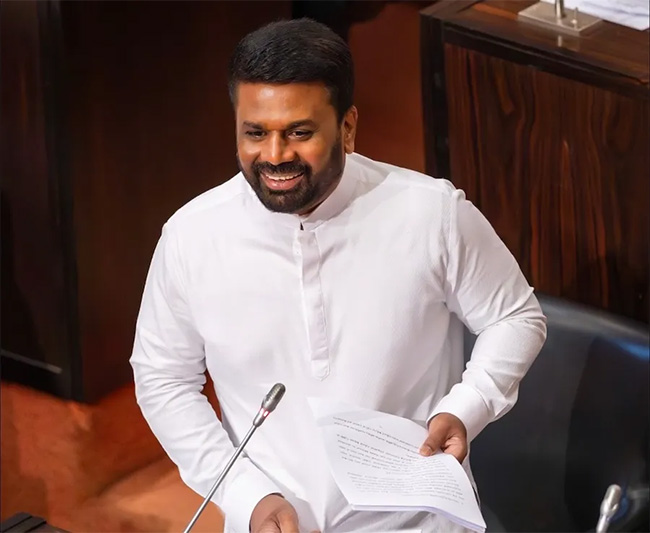
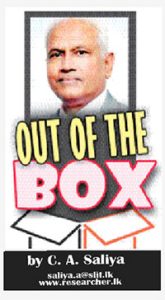 Sri Lanka’s recent government budget has sparked both hope and concern. While some see it as a positive step toward improving the country’s economy, others worry about whether the government’s proposals can be successfully implemented. This analysis explores the budget’s approach and what it could mean for the country’s financial future.
Sri Lanka’s recent government budget has sparked both hope and concern. While some see it as a positive step toward improving the country’s economy, others worry about whether the government’s proposals can be successfully implemented. This analysis explores the budget’s approach and what it could mean for the country’s financial future.
Credit Rating Improvement and What It Means
Fitch Ratings recently upgraded Sri Lanka’s credit rating, moving it from a risky “Restricted Default” (RD) to a “CCC+” rating. This shows that the country’s financial situation is improving, though it still faces a high risk of default. The government aims to increase its revenue, especially through trade taxes and income tax, but experts warn that the success of these plans is uncertain, particularly when it comes to lifting restrictions on imports.
Economic Democracy and Market Regulation
The government claims that this budget is based on the idea of “economic democracy,” aiming to balance market forces with government control. While it promises fairer distribution of wealth, critics argue that it still relies on market-driven policies that may not bring the desired changes. The budget seems to follow similar strategies to past administrations, despite the government’s claim of pursuing a new direction.
The current government, led by a Marxist-influenced party, has shifted its approach by aligning with global economic institutions like the International Monetary Fund (IMF). This represents a departure from its previous, more radical stance. The government’s vision focuses on rural development, support for small businesses, and an export-driven economy, continuing strategies from previous administrations rather than implementing drastic changes.
Stability and Continuity in Policy
One of the more positive aspects of the budget is its consistency with the fiscal policies of the past government. Sri Lanka’s economy has suffered from sudden policy changes in the past, often triggered by political transitions. By maintaining a steady course, the current government seeks to ensure stability in the recovery process, despite criticisms from political opponents.
Sri Lanka continues to face significant financial challenges, including a large budget deficit. The government’s spending in 2025 is expected to exceed its revenue by about LKR 2.2 trillion, leading to a deficit of around 6.7% of GDP. To cover this gap, the government plans to borrow both locally and internationally. However, debt repayment remains a major concern, with billions needed to settle existing obligations.
Tax Revenue and Public Spending Issues
Sri Lanka’s tax collection remains critically low, which worsens the country’s financial troubles. Tax evasion, exemptions, and inefficient administration make it hard to collect sufficient revenue. The government has raised VAT to 18% to boost income, but this could increase inflation, further harming families’ ability to afford basic goods. Additionally, corruption in public institutions continues to drain state resources, preventing effective use of funds for national development.
The Auditor General’s Department recently uncovered financial irregularities in several ministries, reinforcing concerns over systemic corruption.
Sectoral Allocations, Budget Inequities and Falures
Despite claims of prioritizing social welfare, the government’s budget allocation for key sectors remains insufficient. For example, while the government allocated LKR 500 million to improve 379 childcare centers nationwide, this amount pales in comparison to regional standards. In neighboring Bangladesh, the government spends around USD 60 per child annually, while Sri Lanka spends less than USD 25. It’s unclear whether this allocation represents an increase in funding or just a reshuffling of existing resources.
One of the biggest criticisms of the budget is its failure to address the high cost of essential goods, going against promises made during the election. Prices for basic items like rice and coconut are still high, due to supply chain issues, rising fuel costs, and tax policies. The absence of targeted subsidies or price controls has led to growing public dissatisfaction.
Public sector salary adjustments are also a point of contention. The government plans to introduce salary increases in three phases, with the full benefits expected by 2027. However, much of this increase was already granted in previous years through allowances, meaning the adjustment is more about restructuring existing funds than providing real pay increases. This slow approach raises concerns about whether employees’ purchasing power will improve, especially with inflation still a pressing issue.
The government has also urged the private sector to raise wages, but past experiences suggest that private companies often resist such requests. Without formal agreements or laws to enforce wage hikes, there is uncertainty over whether employees will see real wage growth that matches the rising cost of living.
Neglecting Vulnerable Workers and Obstinate Behaviour
Another group left out of the budget’s plans is casual and contract workers, who were expecting improvements in job security and wages, particularly those earning below LKR 1,800 per day. Despite promises made during the election, these workers have not seen any significant changes, which raises doubts about the government’s commitment to improving labor rights and income equality.
The government’s handling of private sector wage increases has also been criticized for a lack of transparency. In a televised discussion, A government representative became visibly agitated when questioned about the date of the agreement with employers, displaying obstinate behavior and refusing to answer the opposition MP’s inquiry.
Review of the Banking Sector’s Role in Govt. Revenue and Economic Growth
The banking sector helps generate national revenue through taxes such as corporate income tax, value-added tax (VAT), and financial transaction levies. However, the claim that it contributed 10% to government revenue in 2024 needs to be understood in context. Past figures have shown fluctuations in financial sector taxes, influenced by economic conditions and fiscal policies. The government’s growing reliance on the banking sector for tax revenue could signal financial stress, and this situation warrants further analysis to understand its long-term sustainability.
While the Sri Lanka Bankers Association (SLBA) emphasizes banks’ support for implementing the government’s budget proposals, their ability to do so effectively depends on broader economic conditions, regulations, and financial stability. Sri Lanka has faced persistent economic issues like high public debt and inflation, which could hamper the ability of banks to help implement fiscal policies effectively. The real impact of the banking sector in driving economic growth remains uncertain, especially given factors like currency instability and a lack of foreign investment.
Digitization and Financial Transparency
The proposal to introduce Point-of-Sale (POS) machines at VAT-registered businesses aligns with global trends in digital financial integration. This move is expected to improve transparency, reduce tax evasion, and increase banking efficiency. Research has shown that digital payments can boost financial inclusion and reduce informal economic activities. However, Sri Lanka faces challenges such as limited digital infrastructure, cybersecurity concerns, and resistance from businesses that still prefer cash transactions.
More digital services could strengthen anti-money laundering (AML) controls, improve transaction monitoring, and reduce cyber threats. However, shifting to a fully digital banking system requires substantial investments in technology, regulatory alignment, and digital literacy among consumers.
Support for SMEs and Development Banking Initiatives
The creation of a Credit Guarantee Institute for SMEs is a significant step. Research shows that credit guarantees can reduce lending risks and improve SME access to financing. However, past state-managed financial programs in Sri Lanka have been inefficient, often involving politicized lending practices.
For these new initiatives to succeed, they will need transparent governance, careful credit risk management, and strong regulations….
Conclusion
Sri Lanka’s banking sector is crucial for economic stability and revenue generation, but the increasing fiscal demands and the push for digital transformation present both significant opportunities and risks. Policymakers need to avoid over-taxation that could stifle credit expansion and investment while addressing digital finance challenges like cybersecurity and infrastructure gaps. The 2025 budget underscores the nation’s vulnerable fiscal situation, where efforts for economic stabilization are hampered by public debt, corruption, and welfare constraints. Achieving sustainability requires comprehensive tax reforms, better public expenditure management, and stronger anti-corruption measures. Without these reforms, Sri Lanka faces prolonged economic hardship, rising inequalities, and diminishing trust in governance. The budget also reflects a blend of ideological transformation and economic pragmatism, with policies largely aligning with past approaches. Fitch Ratings’ cautious optimism signals the potential for recovery, contingent on successful policy implementation. Ultimately, policy continuity is seen as Sri Lanka’s best bet for navigating fiscal uncertainty and achieving economic stability.
(The writer, a senior Chartered Accountant and professional banker, is Professor at SLIIT University, Malabe. He is also the author of the “Doing Social Research and Publishing Results”, a Springer publication (Singapore), and “Samaja Gaveshakaya (in Sinhala). The views and opinions expressed in this article are solely those of the author and do not necessarily reflect the official policy or position of the institution he works for. He can be contacted at saliya.a@slit.lk and www.researcher.com)
Features
Rethinking cities – Sustainable urban innovation

by Ifham Nizam
Dr. Nadeesha Chandrasena is an urban innovator reshaping the landscape of sustainable development. With a background that spans journalism, banking, and military engineering, she brings a unique perspective to urban planning and environmental resilience.
Her work integrates cutting-edge technology with human-centered design, ensuring that cities of the future are not only livable but also adaptive to climate change and rapid urbanisation.
In this interview with The Island, Dr. Chandrasena shares insights into her journey—from her early days in journalism to pioneering the Smart Drain Initiative, a groundbreaking infrastructure project addressing urban drainage inefficiencies. She discusses the critical role of community engagement, the challenges of balancing innovation with political realities, and the urgent need for sustainable urban solutions in Sri Lanka and beyond.
Her story is one of relentless curiosity, problem-solving, and a deep commitment to building better cities. As she puts it, “Urbanisation is inevitable; our challenge is to shape it in ways that are inclusive, sustainable, and forward-thinking.”
Urbanisation is one of the defining challenges of the 21st century, and few understand its complexities better than Dr. Chandrasena. A trailblazer in sustainable urban development, she has dedicated her career to bridging the gap between technological innovation and environmental sustainability. Through her work, she emphasises a crucial message: cities must evolve—not just grow.
From Journalism to Urban Innovation
Dr. Chandrasena’s career path is anything but conventional. Beginning as a journalist, she honed her skills in field research and community engagement, which later became instrumental in her work as an urban planner. “Journalism taught me how to listen to people’s stories and understand the realities on the ground,” she explains. This background helped her develop urban solutions rooted in real-world insights rather than abstract theories.
Her transition into urban innovation was fueled by a deep-seated passion for environmental resilience. After a stint in banking and serving in the Sri Lanka Army Corps of Engineers, she pursued town and country planning, ultimately integrating her diverse experiences to address urban challenges holistically.
The Smart Drain Initiative: A Game Changer in Urban Infrastructure
One of Dr. Chandrasena’s most groundbreaking contributions is the Smart Drain Initiative—a next-generation urban drainage system designed to combat flooding and waste accumulation. Implemented in areas like Balapola and Ambalangoda, this technology incorporates IoT-based monitoring, predictive maintenance, and automated waste filtration to enhance resilience against climate change.
“Storm drains are often neglected, but they are the foundation of a city’s flood resilience,” she says. By modernising drainage infrastructure, her initiative is setting a precedent for cities worldwide to rethink their approach to urban water management.
Livability as the Core Urban Challenge
For Dr. Chandrasena, urban planning is not just about infrastructure—it’s about people. She identifies livability as the root problem that must be addressed in city planning. “Congestion, pollution, lack of green spaces, and inefficient waste management are all symptoms of poor urban planning,” she explains. Her work focuses on designing cities that prioritise well-being, accessibility, and sustainability.
Sri Lanka, in particular, faces unique challenges due to rapid urbanisation. With cities like Colombo struggling to accommodate a massive influx of commuters, Dr. Chandrasena advocates for affordable housing solutions near economic hubs and improvements in public transportation. “A city’s economic success should not come at the cost of its residents’ quality of life,” she insists.
Technology and Community Engagement: The Future of Urban Development
Dr. Chandrasena sees technology as a powerful tool for fostering inclusive urban development. From using social media for community consultations to deploying smart infrastructure, she believes digital solutions can democratise urban planning. “We need to move beyond traditional engagement methods and empower people through accessible technology,” she says.
Her leadership philosophy reflects this inclusive approach. Through initiatives like the MyTurn Internship Platform, she mentors young professionals, encouraging them to take an active role in shaping the future of cities. “Leadership is not about authority—it’s about creating opportunities for collaboration,” she adds.
Global Urban Challenges and the Need for Collaboration
Urban issues are not confined to national borders. Dr. Chandrasena highlights the importance of global partnerships, citing the twin-city concept as a model for knowledge exchange. By pairing cities with similar challenges—such as Galle, Sri Lanka, and Penang, Malaysia—municipalities can co-create solutions that address both local and global urban challenges.
Her work has not gone unnoticed. She recently won Australia’s Good Design Award for Best in Class Engineering Design, a testament to the impact of her innovative approaches.
Call to Action for Sustainable Cities
Dr. Chandrasena’s vision for the future is clear: cities must be designed to be resilient, inclusive, and sustainable. While challenges like climate change and urban congestion persist, she remains optimistic. “There are no perfect cities—just as there are no perfect people. But by striving for practical solutions, we can make cities better for everyone.”
Her journey—from journalist to urban innovator—demonstrates that change begins with a vision and the determination to act on it. As urbanisation accelerates, her work serves as a blueprint for how cities can not only survive but thrive in an ever-evolving world.
Features
Need to appreciate SL’s moderate politics despite govt.’s massive mandate
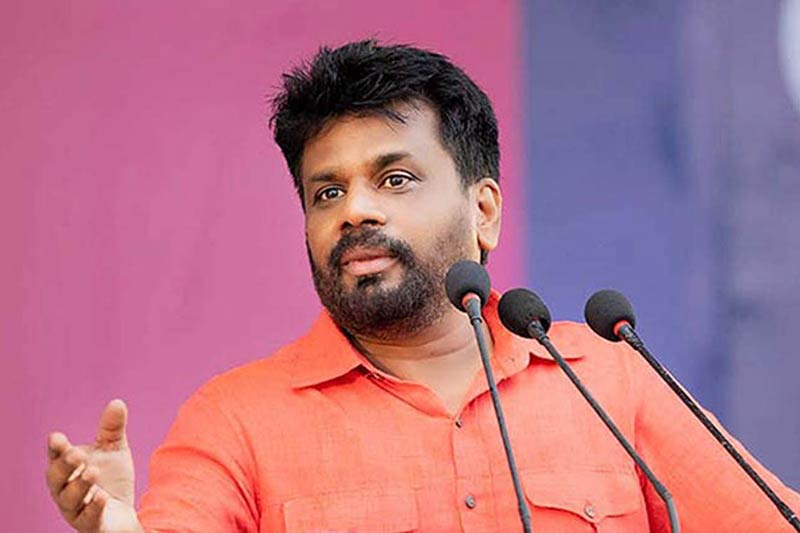
by Jehan Perera
President Donald Trump in the United States is showing how, in a democratic polity, the winner of the people’s mandate can become an unstoppable extreme force. Critics of the NPP government frequently jibe at the government’s economic policy as being a mere continuation of the essential features of the economic policy of former president, Ranil Wickremesinghe. The criticism is that despite the resounding electoral mandates it received, the government is following the IMF prescriptions negotiated by the former president instead of making radical departures from it as promised prior to the elections. The critics themselves do not have alternatives to offer except to assert that during the election campaign the NPP speakers pledged to renegotiate the IMF agreement which they have done only on a very limited basis since coming to power.
There is also another area in which the NPP government is following the example of former President Ranil Wickremesinghe. During his terms of office, both as prime minister and president, Ranil Wickremesinghe ruled with a light touch. He did not utilise the might of the state to intimidate the larger population. During the post-Aragalaya period he did not permit street protests and arrested and detained those who engaged in such protests. At the same time with a minimal use of state power he brought stability to an unstable society. The same rule-with-a-light touch approach holds true of the NPP government that has succeeded the Wickremesinghe government. The difference is that President Anura Kumara Dissanayake has an electoral mandate that President Wickremesinghe did not have in his final stint in power and could use his power to the full like President Trump, but has chosen not to.
At two successive national elections, the NPP obtained the people’s mandate, and at the second one in particular, the parliamentary elections, they won an overwhelming 2/3 majority of seats. With this mandate they could have followed the “shock and awe” tactics that are being seen in the U.S. today under President Donald Trump whose party has won majorities in both the Senate and House of Representatives. The U.S. president has become an unstoppable force and is using his powers to make dramatic changes both within the country and in terms of foreign relations, possibly irreversibly. He wants to make the U.S. as strong, safe and prosperous as possible and with the help of the world’s richest man, Elon Musk, the duo has become seemingly unstoppable in forging ahead at all costs.
EXTREME POWER
The U.S. has rightly been admired in many parts of the world, and especially in democratic countries, for being a model of democratic governance. The concepts of “checks and balances” and “separation of powers” by which one branch of the government restricts the power of the other branches appeared to have reached their highest point in the U.S. But this system does not seem to be working, at least at the present time, due to the popularity of President Trump and his belief in the rightness of his ideas and Elon Musk. The extreme power that can accrue to political leaders who obtain the people’s mandate can best be seen at the present time in the United States. The Trump administration is using the president’s democratic mandate in full measure, though for how long is the question. They have strong popular support within the country, but the problem is they are generating very strong opposition as well, which is dividing the U.S. rather than unifying it.
The challenge for those in the U.S. who think differently, and there are many of them at every level of society, is to find ways to address President Trump’s conviction that he has the right answers to the problems faced by the U.S. which also appears to have convinced the majority of American voters to believe in him. The decisions that President Trump and his team have been making to make the U.S. strong, safe and prosperous include eliminating entire government departments and dismissing employees at the Consumer Financial Protection Bureau (CFPB), Centers for Disease Control and Prevention (CDC) and the Food and Drug Administration (FDA) which were established to protect the more disadvantaged sectors of society. The targets have included USAID which has had consequences for Sri Lanka and many other disadvantaged parts of the world.
Data obtained from the Department of External Resources (ERD) reveal that since 2019, USAID has financed Sri Lankan government projects amounting to Rs. 31 billion. This was done under different presidents and political parties. Projects costing USD 20.4 million were signed during the last year (2019) of the Maithripala Sirisena government. USD 41.9 million was signed during the Gotabaya Rajapaksa government, USD 26 million during the Ranil Wickremesinghe government, and USD 18.1 million so far during the Anura Kumara Dissanayake government. At the time of the funding freeze, there were projects with the Justice Ministry, Finance Ministry, Environment Ministry and the Energy Ministry. This is apart from the support that was being provided to the private sector for business development and to NGOs for social development and good governance work including systems of checks and balances and separation of powers.
MODERATE POLITICS
The challenge for those in Sri Lanka who were beneficiaries of USAID is to find alternative sources of financing for the necessary work they were doing with the USAID funding. Among these was funding in support of improving the legal system, making digital technology available to the court system to improve case management, provision of IT equipment, and training of judges, court staff and members of the Bar Association of Sri Lanka. It also included creating awareness about the importance of government departments delivering their services in an inclusive manner to all citizens requiring their services, and providing opportunities for inter-ethnic business collaboration to strengthen the economy. The government’s NGO Secretariat which has been asked to submit a report on USAID funding needs to find alternative sources of funding for these and give support to those who have lost their USAID funding.
Despite obtaining a mandate that is more impressive at the parliamentary elections than that obtained by President Trump, the government of President Anura Kumara Dissanayake has been more moderate in its efforts to deal with Sri Lanka’s problems, whether in regard to the economy or foreign relations. The NPP government is trying to meet the interests of all sections of society, be they the business community, the impoverished masses, the civil society or the majority and minority ethnic and religious communities. They are trying to balance the needs of the people with the scarce economic resources at their disposal. The NPP government has demanded sacrifice of its own members, in terms of the benefits they receive from their positions, to correspond to the economic hardships that the majority of people face at this time.
The contrast between the governance styles of President Trump in the U.S. and President Dissanayake in Sri Lanka highlights the different paths democratic leaders can take. President Trump is attempting to decisively reshape the U.S. foreign policy, eliminating entire government departments and overwhelming traditional governance structures. The NPP government under President Dissanayake has sought a more balanced, inclusive path by taking steps to address economic challenges and governance issues while maintaining stability. They are being tough where they need to be, such as on the corruption and criminality of the past. They need to be supported as they are showing Sri Lankans and the international community how a government can use its mandate without polarising society and thereby securing the consensus necessary for sustainable change.
-

 Business3 days ago
Business3 days agoSri Lanka’s 1st Culinary Studio opened by The Hungryislander
-

 Sports4 days ago
Sports4 days agoHow Sri Lanka fumbled their Champions Trophy spot
-
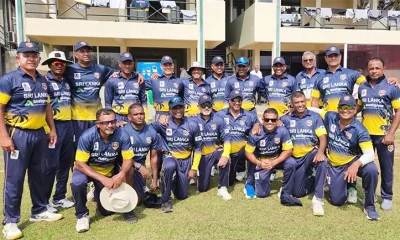
 Sports7 days ago
Sports7 days agoSri Lanka face Australia in Masters World Cup semi-final today
-

 News7 days ago
News7 days agoCourtroom shooting: Police admit serious security lapses
-

 News7 days ago
News7 days agoUnderworld figure ‘Middeniye Kajja’ and daughter shot dead in contract killing
-
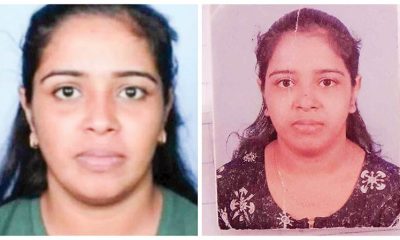
 News6 days ago
News6 days agoKiller made three overseas calls while fleeing
-

 News5 days ago
News5 days agoSC notices Power Minister and several others over FR petition alleging govt. set to incur loss exceeding Rs 3bn due to irregular tender
-

 Features4 days ago
Features4 days agoThe Murder of a Journalist











